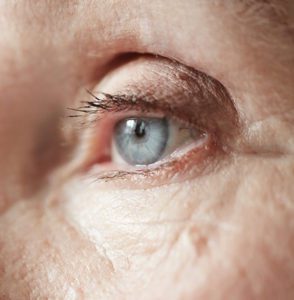Courtesy of Personalized Retina Care of Naples


A retinal artery occlusion (RAO) is a blockage in one or more of the small arteries of your retina. The blockage is caused by a clot or occlusion in an artery, or a build-up of cholesterol in an artery. This is similar to a stroke in your brain.
There are two types of RAOs:
• Branch retinal artery occlusion (BRAO) blocks the small arteries in your retina.
• Central retinal artery occlusion (CRAO) is a blockage in the central artery in your retina.
The most common symptom of a retinal artery occlusion (RAO) is sudden, painless vision loss. It can affect all of one eye, in the case of a central retinal artery occlusion (CRAO), or it can affect part of one eye, in the case of branch retinal artery occlusion (BRAO).
Other symptoms include:
• Loss of peripheral vision
• Distorted vision, and
• Blind spots
If you have any of these symptoms, get medical help right away to help prevent vision loss.
Who Is at Risk for a Retinal Artery Occlusion (RAO)?
Men are more likely to have an RAO than women. The disease is most commonly found in people in their 60’s. Having certain diseases increases your risk of RAO. These include:
• Cardiovascular disease
• Diabetes
• High cholesterol
• High blood pressure
• Narrowing of the carotid or neck artery.
If you experience sudden vision loss, you should contact your ophthalmologist immediately. He or she will conduct a thorough examination to determine if you have had a retinal artery occlusion. Your ophthalmologist will dilate your eyes with dilating eye drops. This will allow him or her to examine the retina for signs of damage.
Other tests your ophthalmologist may do are:
• Fluorescein angiography. This imaging test uses a
special camera to take photographs of the retina.
A small amount of yellow dye (fluorescein) is
injected into a vein in your arm. The photographs
of fluorescein dye traveling throughout the retinal
arteries show how many and which arteries are closed
• Reflexes of your pupil
• Other photos of the retina
• A slit-lamp examination
• Testing of side vision (visual field examination)
• Visual acuity (sharpeness), to determine how well
you can read an eye chart.
Since RAOs involve other aspects of your general health, your ophthalmologist will likely communicate with your primary care provider.
People who have RAOs are at a greater risk for having a stroke (when blood flow to the brain is cut off), so your ophthalmologist or your regular doctor may order an ultrasound of your carotid arteries (the main blood vessels in your neck that send blood to your eyes and brain). An ultrasound is a medical test that uses soundwaves to create images of the organs and tissues inside your body. You might also be told to have an echocardiogram (ultrasound of the heart). Both of these tests help look for a possible source of the blockage in the retinal artery.1
Dr. Katia Taba— Personalized Retina Care of Naples
Dr. Katia Taba has diagnosed life-threatening comorbidities in her patients on more than one occasion due to retinal occlusions, such as leukemia and atherosclerosis (plaque/hardening of the arteries). In fact, just this past month, Dr. Taba diagnosed a patient with severe atherosclerosis just in time for the patient to thankfully have a successful carotid endarterectomy surgery. Mrs. M now calls Dr. Taba “my hero”!! Mr. W states “she saved my sight and my life”.
Katia Taba, MD, is the board-certified ophthalmologist and retina specialist at Personalized Retina Care of Naples in Naples, Florida. Dr. Taba treats macular degeneration, diabetic retinopathy, eye floaters and flashes, and other serious eye problems that can interfere with sight or steal vision without treatment. Patients know Dr. Taba as an extremely friendly and welcoming care provider who maintains great professionalism at all times.
Dr. Taba wants to make sure that patients always get the most accurate diagnosis and most effective treatment, so she uses only the latest, state-of-the-art diagnostic equipment. Dr. Taba is the first retina specialist on the southwest coast of Florida to have wide-angle viewing imaging with fluorescein angiography. Dr. Taba also makes sure that injections and treatments are pain-free so patients can always expect a comfortable experience.
For more information, please visit www.retinanaples.com, or call our office at 239-325-3970.
3467 Pine Ridge Road Suite 103
Naples 34109
1. D. Porter, American Academy of Ophthalmology, Retinal Artery Occlusion, aao.org, May 2019
 Southwest Florida's Health and Wellness Magazine Health and Wellness Articles
Southwest Florida's Health and Wellness Magazine Health and Wellness Articles
